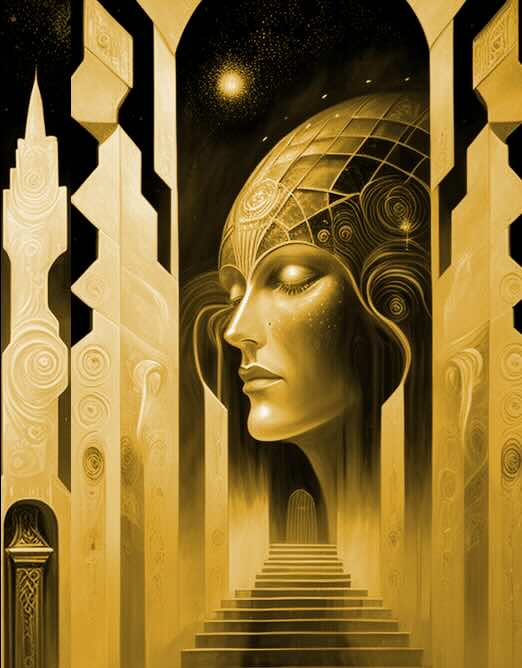The different stages of life have been thought of from a productivist angle: we learn, we produce and we rest. Each stage corresponds to an age of life: youth, adulthood and old age. Work, although its etymology is disputed, refers to an idea of suffering in times when those who worked hard were slaves, while the aristocracy, whether Athenian or Roman, was exempt from manual labor. Today, we live in a different paradigm.
Work Will Become The Prerogative Of The Elite
Work is becoming increasingly complex. The first to be affected by unemployment are the working classes. In the case of third-level industrialization (as seen in today’s most industrialized countries), the more the economy industrializes, mechanizes, automates, robotizes, improves its processes and equips itself with artificial intelligence, the less the historically working classes have access to work. The increasing scarcity of work is accompanied by the systematic exclusion of those who have had the least access to higher education.
Work Becomes Leisure
The word school comes from the Greek “σχολή” (skholế, meaning leisure or free time). Historically and etymologically, school is where you go when you’re not working. It was because they were exempt from laborious work (handicrafts were not considered as such), that Athenian citizens could access education. Today, it’s almost the opposite: it’s because the world of work concentrates new technological advances that we learn best by working in a profession. The world of work has become the school, and by deductive reasoning from its etymology, work has paradoxically become a leisure activity.
Work Has Become An Infinite Game
As a reminder, an infinite game is one that has no clear rules, no fixed number of players and no clearly defined goal other than to keep on playing, which distinguishes it from so-called finite games. Until then, work was a finite game: it had a beginning (the start of adulthood), an end (the start of retirement) and a goal (to finance adulthood and retirement). Today, work has changed so much that it has become an infinite game. Its purpose is not clearly defined, and its duration and conditions are just as changeable. The worker’s aim seems to be to keep working.
Learning Is Endless
To learn, you have to work. It’s safe to assume that in the future, say in the next forty years or so in developed countries, work will become an option. This is already more or less the case: as mentioned, the working classes have less access to work, and young people are studying longer and longer, which distances them from work at the start of their careers. The social changes will be of a completely different order. The overall wealth produced in developed countries will increase without the contribution of human labor increasing. In fact, it will decrease. The result will be the advent of a society in which a sizeable proportion of the population will have no access to work, yet will be richer.
Work Or The End Of An Opium
If for a long time religion was the opium of the people, today it’s work that plays this role. Work gives us meaning, identity, status and so on. All these things will have to be obtained elsewhere in the future, when work ceases to be the norm.
Building A New SocietyA Darker Future: The Questioning Of Human Value
As you can see, tomorrow’s world will be somewhat unburdened by work, which will be massively entrusted to machines and artificial intelligence. However, life will not have lost its meaning, and humans will still need status, recognition and social organization. It’s true that work plays this role today, whereas before it was religion that fulfilled this mission. We will continue to exist, and our existence will not be under the prism of productivity, or so I believe. Some believe that a race for cognitive performance will lead to bionic men with boosted intelligence. I believe that man’s meaning and mission lie elsewhere. Man is a spiritual and profoundly social entity. I rather believe that man will build a society based on harmony (preserving ecosystems and family ties) in which he will have a role to play. The future will tell, and most of us will be there to see it.
A darker future: the questioning of human value
Some say (cf. Dr Laurent Alexandre in his book, la guerre des intelligences) that advances in artificial intelligence will soon render human intelligence skills obsolete. In so doing, man’s usefulness from a civilizational point of view will be called into question. In short, the machines (the students) will have overtaken the human (the master), and we could find ourselves in the strange situation of humans being enslaved by their own creations, in the same way that parents are, alas, sometimes enslaved by their own children. If the meaning of civilization is only seen through the prism of technology, it’s clear that mankind as a whole is under threat. However, if both safeguards exist against AI supremacy and the meaning of civilization is harmony, then man will still have his place in the future. The foundations of a harmonious civilization emancipated from the technological prism alone will be spirituality (which can be defined as the tool for developing the noble qualities in every human being) and the preservation of nature.










